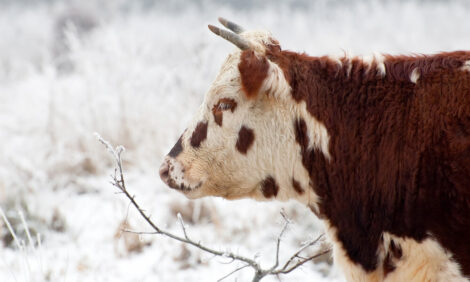



First Virus-Free Pluripotent Stem Cells In Cattle
NEW ZEALAND - The science team at Ruakura, led by Dr Björn Oback, has produced the first virus-free pluripotent stem cell- like cells in cattle, a species where similar attempts have failed for decadesDr Oback predicts that this discovery and the convergence of reproductive and stem cell technology will unlock a new realm of practical possibilities for agriculture.
“This breakthrough shows that by firmly focussing on farm animals, with cattle as a model system, we can leverage New Zealand’s distinct strengths and make important scientific contributions to this field of research,” said Dr Oback.
Induced pluripotent stem cells (iPSCs) are capable of turning into any cell type in the body, an ability referred to as ‘pluripotency’. Unlike embryonic stem cells, which are also pluripotent, iPSCs do not require destruction of an early embryo but can be derived from almost any cell in the body.
Dr Ben Huang, AgResearch Scientist and lead author of the study, attributes the success to a novel culture medium.
“This medium promotes pluripotency by inhibiting different cell signalling pathways. Using signal inhibition, we induced stem cell markers in bovine skin cells. We then coaxed them into forming mature tissues after transplantation into mice”, explains Dr Huang.
“Importantly, the culture conditions were completely chemically defined and free of potentially pathogenic components, such as feeder cells or serum,” he said.
Unlike iPSCs in other species, the bovine cells did not require viruses to carry pluripotency-inducing genes into cells. For their virus-free approach, AgResearch scientists simply incubated skin cells in plasmid DNA encoding the pluripotency factors - and watched the cells reprogramme back into an embryonic stem cell-like state.
This delivery route is safer than viruses, which can trigger the immune system and cause tumours. Plasmids are also easy-to-use and cheap, eliminating the need for specialised biohazard containment facilities.
New Zealand will ultimately benefit from this advance in stem cell technologies. Future agricultural applications include the ability to generate animals whose sperm are made from iPSCs. In such animals could be used to effectively capture and multiply elite genetics, taking genomic selection from the whole animal to the cellular level, accelerating breeding and genetic gain.
The research was funded by the New Zealand Foundation for Research, Science and Technology (the Ministry of Science and Innovation) and AgResearch.
TheCattleSite News Desk


